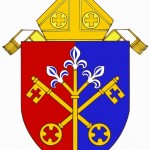 So the labor unions lost tonight. Wisconsin’s Governor Scott Walker will remain in office, and the labor unions’ $9 million statewide recall attempt will have failed. The Democrats, sore losers, are crying foul; but CNN grudgingly stops calling the race “too close to call” and admits that Walker has beaten back Democratic challenger Tom Barrett.
So the labor unions lost tonight. Wisconsin’s Governor Scott Walker will remain in office, and the labor unions’ $9 million statewide recall attempt will have failed. The Democrats, sore losers, are crying foul; but CNN grudgingly stops calling the race “too close to call” and admits that Walker has beaten back Democratic challenger Tom Barrett.
You know, my dad was a union guy. A truck driver, he was fiercely loyal to the Teamsters and their colorful (albeit controversial) leader, Jimmy Hoffa. But Dad had experienced life without labor unions, and needed the protections they promised. So had my grandfather, an auto worker who joined the UAW in its early days. During the unions’ formative years, my grandparents’ neighbor had been beaten by union thugs as he worked to organize laborers to demand higher wages and better working conditions.
 Those were the days when wages were low and hours long, when worker safety too often fell prey to corporate pursuit of profit.
Those were the days when wages were low and hours long, when worker safety too often fell prey to corporate pursuit of profit.
BUT TODAY? Are labor unions still a positive influence in American business and in the public sector? Or have they over-reached their mission?
Too often since the 1960s, unions have been guilty of overlaying their base mission of protecting workers’ rights with a radical new role: political posturing and endorsement of liberal causes. For example, union dues have supported abortion rights (irregardless of the deeply held pro-life views of their own membership). To their detriment, teachers’ unions have protected the interests of substandard teachers, rather than fostering excellence which can inspire students to succeed. Unions have protected lazy or incompetent workers, resulting in lowered productivity and reduced corporate profit.
The noble ideal of a labor union reverberates through Catholic social teaching. There are many encyclicals and papal documents which address labor issues in depth; tonight, I’d like to highlight Pope John Paul II’s defense of unions in his 1981 encyclical Laborem Exercens.
No pushover for liberal special interests, the Pope wrote about the real needs which unions should address. Speaking of labor unions, he writes:
Their task is to defend the existential interests of workers in all sectors in which their rights are concerned. The experience of history teaches that organizations of this type are an indispensable element of social life, especially in modern industrialized societies.
Catholic social teaching does not hold that unions are no more than a reflection of the “class” structure of society and that they are a mouthpiece for a class struggle which inevitably governs social life. They are indeed a mouthpiece for the struggle for social justice, for the just rights of working people in accordance with their individual professions. However, this struggle should be seen as a normal endeavour “for” the just good: in the present case, for the good which corresponds to the needs and merits of working people associated by profession; but it is not a struggle “against” others.
It is characteristic of work that it first and foremost unites people. In this consists its social power: the power to build a community. In the final analysis, both those who work and those who manage the means of production or who own them must in some way be united in this community.
Just efforts to secure the rights of workers who are united by the same profession should always take into account the limitations imposed by the general economic situation of the country. Union demands cannot be turned into a kind of group or class “egoism”, although they can and should also aim at correcting-with a view to the common good of the whole of society– everything defective in the system of ownership of the means of production or in the way these are managed.
In this sense, union activity undoubtedly enters the field of politics, understood as prudent concern for the common good. However, the role of unions is not to “play politics” in the sense that the expression is commonly understood today. Unions do not have the character of political parties struggling for power; they should not be subjected to the decision of political parties or have too close links with them. In fact, in such a situation they easily lose contact with their specific role, which is to secure the just rights of workers within the framework of the common good of the whole of society; instead they become an instrument used for other purposes.
It is always to be hoped that, thanks to the work of their unions, workers will not only have more, but above all be more: in other words, that they will realize their humanity more fully in every respect.











